He was receiving a torrent of memories as he looked at the chair from which she had looked at him, with a face that retained only the faintest trace of his past. A widow, worn down by fatigue and mourning, but proud of her true victories. Memories surrounded him like flocks of violets. He remembered how the daughters of the house of infamous marriage married one after another, despite what he had heard repeatedly that these girls were not meant for marriage and that no one would seek to marry them. Every time he heard news of their successful marriage, he was astonished and lost his balance. In the evening, he secluded himself in his study, while his wife and daughters were busy preparing for the awaited ballet evening. It was not strange for him to take out his old diary from the drawer where valuable papers such as the land ownership contract and the insurance policy were kept. Since his adolescence, he had been accustomed to recording his emotional and social events day after day. He saved its pages to go back to 1925 and around it, even the telephone number alone, and out of an motive he did not know the nature of, his hand reached out to the telephone dial and dialed the old number. A voice came to him, “Hello?” So he asked it, smiling mischievously, “Beit Halawa?” The voice hit him harshly: “No, sir… This is the Tambali shop for selling burlap.”
“A House of Bad Reputation” is a collection of short stories that tells some of the stories of the people. Naguib Mahfouz meticulously drew its characters, moving them within frameworks that reflect their inner selves, expressing their pain and dreams, and their natures, which are often hidden behind multiple masks. However, most of these masks are required by social customs and traditions. Therefore, Naguib Mahfouz’s narrative performance, in addition to his wonderful literary style, his gentle expressions, his enjoyable atmosphere, and his engaging events, contains within it treatments that delve deeply into psychology, sociology, and… and…, creating in his stories spaces for psychological and social studies, and, first and foremost, a space for enjoying an engaging literary work of fiction.
A House of Infamous
د.ا6.00
A social novel that sheds light on the social conditions and psychological challenges facing members of society within a framework of suspense and drama.
Available on backorder
| Categories: | Literature, Novels, stories, World literature |
|---|---|
| Tags: | literature, Novels, Sociology, stories |
| Author | |
|---|---|
| Year | |
| Publisher | Dar Al-Shorouk |
You may also like…
-
God’s World
د.ا6.00A philosophical collection of short stories that explores human questions about fate, faith, and life through intensely symbolic scenes.
-
The Struggle of Thebes
د.ا6.00The novel tells in an epic style the story of the Egyptians’ resistance to the Hyksos occupation, embodying their struggle to regain freedom and national dignity.
-
The Black Cat Tavern
د.ا6.00A collection of short stories that sheds light on Egyptian reality through marginal characters, revealing the inner struggles of man in the face of life and society.
-
The Final Decision
د.ا6.00A philosophical novel that addresses issues of life, death, and fateful decisions, through a personal experience in which questions of existence and destiny intertwine.
Related products
-
The Da Vinci Code
د.ا8.52- The Da Vinci Code is a 2003 mystery thriller novel by Dan Brown. It is Brown’s second novel to include the character Robert Langdon: the first was his 2000 novel Angels & Demons. The Da Vinci Code follows symbologist Langdon and cryptologist Sophie Neveu after a murder in the Louvre Museum in Paris entangles them in a dispute between the Priory of Sion and Opus Dei over the possibility of Jesus and Mary Magdalene having had a child together.
د.ا10.65 -
About men and guns
د.ا2.13Ghassan Kanafani is a Palestinian novelist, storyteller, and journalist, and is considered one of the most famous Arab writers and journalists in the twentieth century. His literary works, including novels and short stories, were deeply rooted in Arab and Palestinian culture
د.ا3.55 -
What’s left is yours
د.ا2.13Ghassan Kanafani is a Palestinian novelist, storyteller, and journalist, and is considered one of the most famous Arab writers and journalists in the twentieth century. His literary works, including novels and short stories, were deeply rooted in Arab and Palestinian culture
د.ا3.55 -
Prisoner of Heaven
د.ا7.10After the shadow of the wind and the angel game, I ended my strange meeting with Carlos Zafon in the third part of the Tomb of Forgotten Books series in this piece that I read while trying to understand what was going on in his head, which wanted the prisoner of heaven to tell us the dark nights of Barcelona from the window of its prisons, that prison that embraced Martin for a long time and through which he excelled in writing The Game of the Angel, which was the hero of that novel David Martin and Isabella, and we got to know their end, which was not confirmed by the lines. The writer also explains that what we can consider a coincidence with us may be wisely studied and what we interact with with all honesty may be fake and obsolete as the first boot, the past is just images stuck in our heads and just a glance of it returns to expose itself, and opens new cracks in our hearts, pushing you to search and explore what the truth is and to what extent it can comfort you or in any proportion that may make you a wreckage between the legs, yet the search for it is The way of salvation,
د.ا8.52 -
My journey from doubt to faith
د.ا2.13I refused to worship God because I was immersed in worshipping myself and admired the flash of light that began to flash in my mind with the opening of consciousness and the beginning of the awakening from the cradle of childhood.
This psychological state was behind the controversial scene that recurs every day. I also missed the origins of logic and I am dealing with logic and I did not realize that I am contradicting myself as I recognize the Creator and then say who created the Creator and make him a creature at the time when I call him a creator, which is sophistry itself.
Moreover, to say a first cause of existence requires that this cause must exist in itself and not dependent or need others to exist. If a cause needs a cause, this makes it one of the causal links and does not make it a first cause.د.ا3.55 -
Two years, eight months and twenty-eight nights
د.ا7.10A book that blends fiction and nonfiction to explore issues of religion, identity and human conflict
د.ا8.52 -
For Bread Alone
د.ا4.97For Bread Alone , al-Khubz al-Hafi) is a controversial autobiographical work by Mohammed Choukri. It was written in Arabic in 1972 and translated into English by Paul Bowles in 1973.[1] In 1980, it was published in French as Le Pain Nu in a translation by Tahar Ben Jelloun. The novel has been translated into 39 foreign languages[2] and adapted into a French graphic novel by Abdelaziz Mouride [fr].[3]
د.ا7.10 -
Flower swordsman
د.ا7.10The Swordsman of Flowers is a collection of prose texts that combines irony and sadness and expresses issues of freedom and human oppression
د.ا8.52


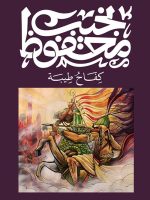
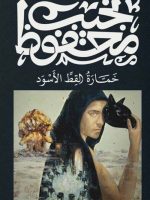
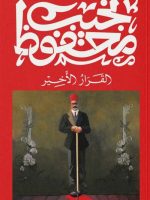
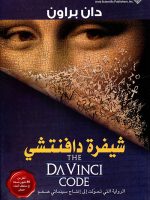

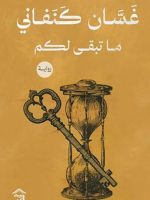
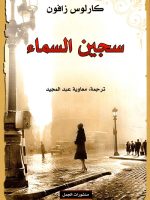
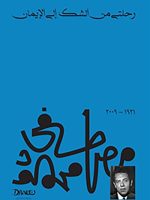
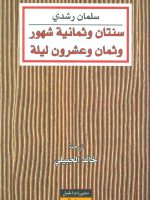
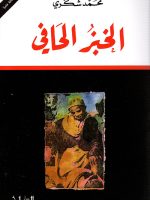

Be the first to review “A House of Infamous”